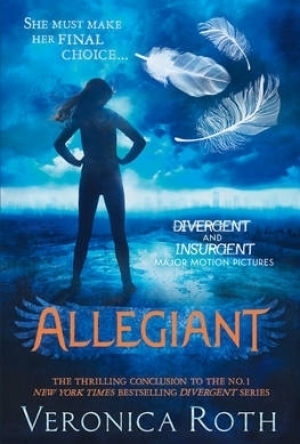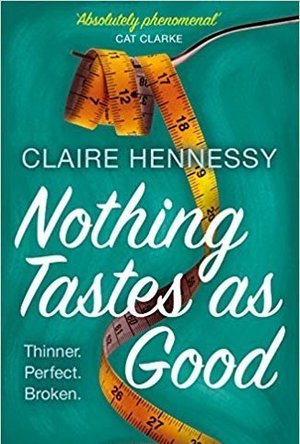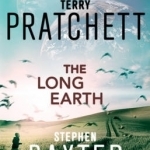
Golfshot: Golf GPS + Scorecard
Sports and Health & Fitness
App
Gain confidence on over 40,000 courses worldwide and trust in your game with Golfshot. Like a...

Golfshot Plus: Golf GPS
Sports and Business
App
Gain confidence on over 40,000 courses worldwide and trust in your game with Golfshot Plus. Like a...

TrafficCamNZ
Navigation and Travel
App
TrafficCamNZ displays internet accessible pictures of Traffic Cameras all over the world. You could...
Sophia (Bookwyrming Thoughts) (530 KP) rated Allegiant in Books
Jan 23, 2020
I've been spoiled of the ending. Yep. SPOILED. Then I confirmed it at Barnes & Noble by finding out what chapter it happens on... which I won't say at all.
That should have stopped me from even picking up the last copy from the school library, or even asking, because I simply don't want to get smacked in the face by what happens in the end and how it truly leads there.
But I decided that I should simply take a chance on the series, because after all, I liked the other books in the series. It would be a different case if I didn't like Divergent and Insurgent.
And maybe I'll have different thoughts despite the ending when I do finish reading.
<b><u>After Reading:</b></u>
Let me just mention this first and foremost: this will not be a very rave review, despite the rating. So Divergent fans, if you cannot handle not-so-very-rave reviews, please turn around and walk out. If you can, or if you're remotely curious, feel free to continue on.
But don't say I didn't warn you. Because I certainly did, and I won't be warning again. Oh, and there may be a few spoilers. They're in red....
I’m just going to "Cut to the Chase" right this minute, and possibly earn a few tomatoes thrown at me as a result in the end. I’m pretty sure I’m entitled to my honest opinion, so if I lied, I wouldn’t be honest after all.
I do not mean the music video by Trish Thuy Trang featuring Cardin.
My nose might grow longer as well. ;)
Allegiant was dangling on a fish hook right above the surface of DNF Lake many times while reading it. Near the end though, after a HUGE – and by "HUGE," I mean at least 80% of the way through – chunk have been read, I kind of spared it and brought it back to shore. Some people may have noticed me complaining a bit – and giving a few brief review spoilers! – on Twitter or Personal Facebook. And yes, I have a Facebook. Please don't stalk me. :p
One of the review spoilers? I don't particularly like Tris as a character anymore. POSSIBLE SPOILER ALERT! Possibly making it worse – and basically only L knows about this – I don't feel really sorry about what happened to her. Well, I'm upset, but I'm not exactly going to start crying and being depressed over what happened.
I have my reasons.
I didn't really notice it back in Insurgent, but Tris seems too impulsive in her actions. She and Tobias also argue too much. :/ Then again, I'm not an expert in the relationship department. It was just aggravating and annoying.
Allegiant certainly wasn't boring, which was another review spoiler. It was Veronica Roth's writing. It seems more... I don't know. There's just something about the writing that bothers me in Allegiant. And it's not because of Tobias' POV being added in, though it was interesting to break into his mind and take a peek behind the "stoniness".
By stoniness, I meant that he doesn't seem to give out a lot of what he's really thinking. I guess it's a nice change, being able to see/read what Tobias is thinking. SPOILER ALERT! Oh, and he likes to hurt people?! Disappointing in that part...
Okay, you now have the right to bash me and throw tomatoes at me. Just give me ten seconds to run away. :p
<blockquote>Yeah, sometimes life really sucks. But you know what I'm holding on for?
The moments that don't suck. The trick is to notice them when they come around.</blockquote>
---------------------
Formatting may be lost due to copy and paste. Pictures have been removed from this review.
This review and more on <a href="http://bookwyrming-thoughts.blogspot.com/2013/12/review-allegiant-by-veronica-roth.html">Bookwyrming Thoughts</a>
<img src="http://4.bp.blogspot.com/-Gi5Rk5yLloA/UtliaUbdL3I/AAAAAAAACbE/J27z92_qrYU/s1600/Official+Banner.png"; />
Eleanor Luhar (47 KP) rated Nothing Tastes as Good in Books
Jun 24, 2019
So Annabel is dead. I'm studying The Lovely Bones at school so the whole beyond-death narration isn't that special to me now. But Hennessy does it pretty differently to Sebold.
We don't know much about Annabel, not at first. But we begin to learn about her while she helps her assigned "soul-in-need" - The Boss (definitely not God) has promised her a final communication with her family if she helps Julia. And this looks easy, at first - Julia is from Annabel's old school, with a loving family and good grades. Everything is fine, except she's fat. Annabel thinks this should be easy - after all, she's an expert in weight loss. She lost weight until she died.
But Annabel soon finds out that Julia's issues are a whole lot more complex than her weight. At first, losing weight helps. But then her old scars come back to haunt her, and Annabel realises that maybe losing weight isn't going to fix all her problems.
Aside from the obvious issue, this book does talk about a lot of important topics. It covers friendships and relationships, like most YA novels do, but it also combats ideas on feminism, affairs with older men, and people all having their own hidden demons.
At first, I wasn't keen on Annabel. I wanted to like her - I felt I should, because I could relate to her story so much. But she was a bitch. She wanted other people to be like her, and rather than encouraging recovery and health and happiness, she shared tipped on weight loss. It really did hurt to read. Her ideas on "perfection" and being weak for eating just really hit a nerve for me. Not because it was wrong (though I'd never encourage an eating disorder in someone else), but because it's exactly how I'd think about myself. Her behaviours, her worries, her anger - they were so real.
But Annabel, despite being dead, grows alongside Julia. Yes, she tells Julia to starve herself and run on an empty stomach and hate herself, but eventually she starts to feel for her. She wants Julia to combat her issues, to actually be happy. And she realises, despite having been so upset with her old friends for recovering, that maybe she wasted her life. Maybe she could have been something more, rather than striving to be less.
I found this really emotional. Annabel's love for her sister, the sister she neglected for years while she was focused on her goals, and the future she cut short. The way Julia's life changed when her passion for writing and journalism was overtaken by her obsession with food, calories, exercise. It's so real and so sad. And the ending isn't "happily ever after" - Annabel's still dead, Julia's in counselling - but it's real. It gives hope that things can change, that Julia can really achieve happiness.
At first, I didn't like this that much. I know Annabel is just a character, but I just didn't like her. She was one of those girls that makes anorexia sound like a choice, a lifestyle, and I hated that. But later she realises she is sick, and I actually felt sorry for her. I was sorry that she had been brainwashed by her illness into believing she was doing what was right.
The only reason I'm giving just 4.5 stars to this book is because Annabel was a bitch. Yes, she is a character, and yes, she grows considerably throughout the novel, but her encouragement of EDs just drove me insane. Personal pet peeve, I guess.

Home yoga practice
Health & Fitness and Lifestyle
App
What is preventing you from living your life to the fullest TODAY? Body aches? Stress? Your mood? ...

Baby Monitor 3G
Lifestyle and Health & Fitness
App
The First HD quality multiplatform Baby Monitor is here! BABY MONITOR 3G is a universal video and...

Deezer: Music Player & Radio
Music and Entertainment
App
Discover the music you love with Deezer. With access to millions of tracks, create endless playlists...
Jordan Binkerd (567 KP) rated The Long Earth in Books
Aug 13, 2019
I’m a huge fan of Terry Pratchett’s work, in case you hadn’t noticed. I’m slowly working my way through his Discworld novels and Good Omens: The Nice and Accurate Predictions of Agnes Nutter, Witch, cowritten with Neil Gaiman, is among my favorite books of all time.* So when I discovered The Long Earth at my local library, I was ecstatic. I’d heard good things about Stephen Baxter, but never actually read any of his material. What I found was one of the best novels I have read in a very long time.
The premise here is that there are infinite worlds parallel to ours, spread out across the vast “contingency tree” of possible Earths, and in all of the Long Earth only one iteration has developed Human life–ours. Throughout our history there have always been a few with the natural ability to “step” between worlds at will, and still others who did so unintentionally and disappeared forever, but the world at large was unaware of this phenomenon until a reclusive scientist posted the blueprint for a “stepper” device on the internet and promptly disappeared from his apartment. Suddenly, the whole of the Long Earth is opened up to humanity. Suddenly, there is no shortage of land or resources. Economies are hard hit, jobs are lost, and once again humanity’s pioneer spirit is stirred to go out into the frontier and try to make their way….
Joshua Valiente is a so-called “natural stepper,” but he is probably unique among humanity. In the stress of childbirth, his mother stepped out of her world and into a parallel forest before slipping back without him. She managed to get back and recover him pretty quickly, but nevertheless young Joshua spent the first ten minutes or so of his life completely alone in his universe. As a result, he is uniquely attuned to the Long Earth. He can step between worlds without nausea, and is keenly sensitive to the number of people around, growing intensely uncomfortable the more crowded things get. Now, fifteen years after the world learned of the Long Earth, he spends most of his time exploring where no man has gone before. Lobsang, on the other hand, is a keenly intelligent AI, who may or may not be the latest reincarnation of a Tibetan motorcycle repairman. In collaboration with the shadowy Black Corporation, Lobsang has conceived a plan to test just how far the Long Earth goes. And he wants Joshua to go with him….the resulting journey is as much an exploration of what may have been as it is a geographical one, with most worlds mirroring our own, but a few display the effects of a cosmic “toss of a coin” going the other way–for example, there’s one where the Earth was completely destroyed by an asteroid strike sometime in the distant past.
Put quite plainly, this was the best thing I’ve read in a very long time. Very original, and to my (admittedly limited) understanding very faithful to the relevant science without losing quality of narrative or character. Pratchett’s humor and sardonic narrative voice shines through quite often in the interpersonal or introspective moments as well as those detailing more plot driven points–those scenes that would, in a film, become some form of montage showing that time is passing and this is what’s happening in the meantime. As I mentioned, I’ve never read Baxter before, so it’s harder to pick out his voice from their collaboration.
Infodumping has become something of a cardinal sin in the science fiction world, but sometimes you just have to throw some information at the reader so that he doesn’t get lost. I felt that The Long Earth handled that very well. We get our first glimpse at the long earth in montage mode, a series of vignettes that don’t make sense on their own, people popping in and out of worlds without understanding themselves what is going on. This is followed by the main story, twenty years after the discovery of the Long Earth, in which the bare bones are presented via a TV interview a character is half-watching while he waits. These bare bones of the conceptual basis of the book are then fleshed out in more detail as Joshua and Lobsang and introduced and get to know each other, discussing the various theories regarding the Long Earth at length in an effort to better understand it themselves. This is interspersed with flashbacks, sometimes Joshua recalling his experiences, sometimes Lobsang telling stories of other people based on his research into early encounters with the Long Earth. In this way Pratchett and Baxter manage to convey how humanity as a whole is dealing, not just Joshua and Lobsang. If I have one complaint with this it is not always clear why or how we are being told this–you don’t discover until the end of the chapter that Lobsang is telling this to Joshua instead of the authors just throwing in a tangential bit with no direct connection. And it is all connected–every revelation, every character you visit and then abandon early in the book will come back and have significance later on.
This is perhaps not the easiest read–you do have to engage it to understand it properly–but neither is it an incomprehensible enigma. As long as you pay attention you should be fine.
CONTENT: Some R-rated language, but not nearly what you could find elsewhere. Some violence, some grisly aftermath of violence. Sexual references, but nothing explicit.
*I’m frankly a little surprised I don’t have a review of that one up here, I must have reread it last just before I started doing this. I’ll have to fix that in the near future….
Original post: https://jordanbinkerd.wordpress.com/2013/09/18/review-the-long-earth-by-terry-pratchett-stephen-baxter/



